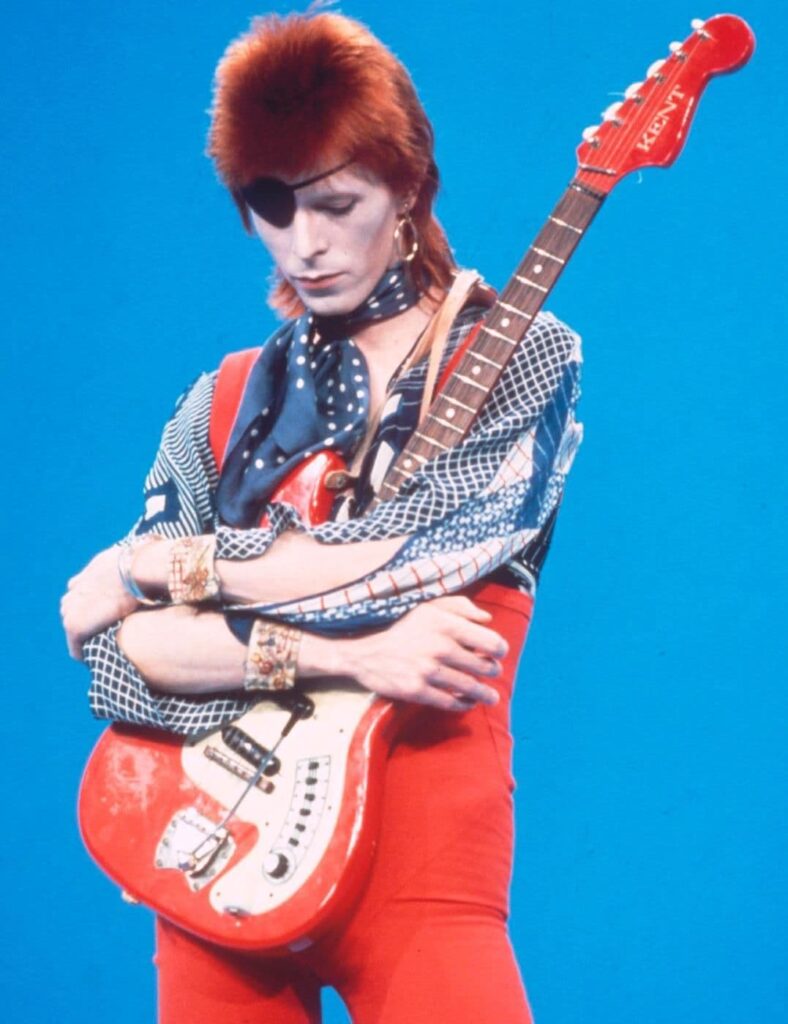
A Glittering Anthem of Defiance: When Youth Broke Free From Its Chains
David Bowie’s electrifying anthem, “Rebel Rebel,” a raucous declaration of youthful nonconformity, clawed its way to number five on the UK Singles Chart in 1974. It was the glam-rock era’s defiant cry, a raw, unapologetic statement that resonated with a generation teetering on the edge of change. This song, a cornerstone of the Diamond Dogs album, was not just a hit; it was a cultural touchstone, a moment frozen in time where the spirit of rebellion found its perfect soundtrack.
Ah, those days of fluffed hair and platform boots, when the air crackled with a sense of barely contained anarchy. “Rebel Rebel” emerged from the fertile, albeit chaotic, mind of David Bowie during a period of intense creative exploration. Originally intended for a theatrical adaptation of George Orwell’s 1984, which ultimately morphed into the apocalyptic landscape of Diamond Dogs, the song became a standalone testament to the restless energy of youth. Imagine, if you will, the studio sessions, the raw, driving guitar riff—a riff that, legend has it, Bowie himself crafted, a testament to his versatility as a musician—cutting through the air like a jagged shard of glass. It was a riff that seemed to embody the very essence of teenage angst, that feeling of being trapped, misunderstood, and desperate to break free.
The lyrics, a tapestry of androgynous imagery and defiant pronouncements, painted a vivid picture of a world where traditional norms were being gleefully shattered. “Hot tramp, I love you so!” he crooned, his voice a seductive blend of vulnerability and defiance, capturing the essence of a generation questioning the very fabric of society. The song wasn’t just about rebellion for the sake of it; it was about the yearning for identity, the struggle to find one’s place in a world that often felt suffocating. It was a call to arms for those who felt marginalized, a rallying cry for the misfits and the dreamers.
Think back to those hazy nights, the flickering lights of the disco, the smell of cheap perfume and hairspray, the raw energy of youth pulsing through the dance floor. “Rebel Rebel” was the soundtrack to those moments, a song that captured the intoxicating sense of freedom and possibility. It was a song that spoke to the heart of every young person who had ever felt like an outsider, a song that gave them a voice, a sense of belonging. The song’s enduring appeal lies in its timeless message, a message that transcends generations and speaks to the universal desire for self-expression and liberation.
The song’s impact was undeniable. It became an anthem for the glam-rock movement, a genre that celebrated individuality and pushed the boundaries of conventional style and expression. Bowie, with his chameleon-like ability to transform himself, became the embodiment of this ethos, a figurehead for a generation that refused to be defined by societal expectations. The raw, distorted guitar riff, the driving rhythm, and Bowie’s charismatic vocals combined to create a sonic masterpiece that continues to resonate with listeners today. It was, and remains, a testament to the power of music to capture the spirit of a moment, to encapsulate the essence of a generation, and to inspire us to break free from the chains that bind us.